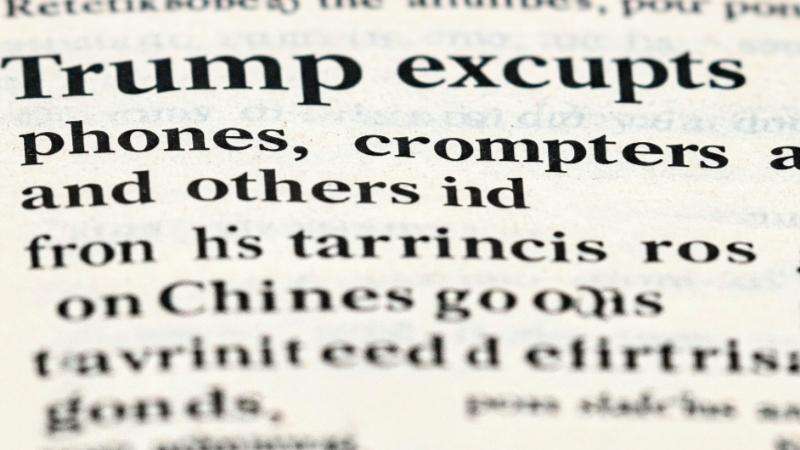In a move that has sent ripples through both the tech industry and international trade circles, the Trump administration has announced exemptions for smartphones, computers, and other electronics from its sweeping tariff regime. This decision, formalized in a late-night guidance from U.S. Customs and Border Protection, marks a significant adjustment to the president's previously hard-line stance on Chinese imports, Daily Dazzling Dawn understand.
The exemptions arrive after a period of intense market volatility, fueled by anxieties over the administration's escalating trade policies. Notably, the very high tariffs that had been put in place against chinese imports. The rapid changes in policy, have caused alot of market unstability.
Key points of the development include:
Exemption Scope:The exemptions specifically target consumer electronics, including smartphones and computers, many of which are manufactured in China.
Semiconductor manufacturing equipment is also included in the exemptions, indicating a recognition of the sector's crucial role in the U.S. economy.
Market Impact:
The decision is widely viewed as a relief for major U.S. tech companies, such as Apple, which had faced the prospect of substantial cost increases.
Financial analysts suggest that the exemptions could stabilize tech stocks, which had been particularly vulnerable to trade war fears.
Political Context: This policy shift comes amidst increasing pressure from industry leaders and concerns about the potential impact of tariffs on U.S. consumers. It also can be seen as the trump administration walking back some of the more extreme tarrifs that were put in place.
Analysis:Observers are interpreting the exemptions as a sign that the administration is reassessing its trade strategy, potentially acknowledging the complexities of global supply chains.The move has also caused critics to point out the inconsistancy of the trade policy.
The decision highlights the delicate balance between the administration's trade objectives and the potential economic consequences of its policies. As the situation evolves, the impact on U.S.-China trade relations and the broader global economy remains a subject ofintense scrutiny.
_2.jpg)
_3.jpg)


_3.jpg)



.svg)
